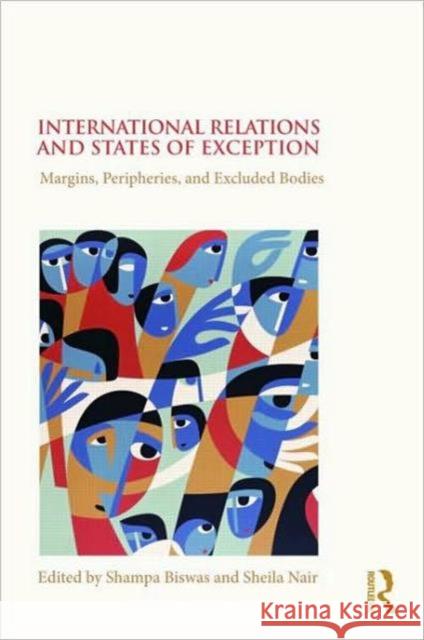International Relations and States of Exception: Margins, Peripheries, and Excluded Bodies » książka
International Relations and States of Exception: Margins, Peripheries, and Excluded Bodies
ISBN-13: 9780415776950 / Angielski / Miękka / 2009 / 272 str.
Critically but sympathetically interrogating Italian philosopher Giorgio Agamben's analysis of the logic of sovereign power, this volume draws attention to the multiple zones of exclusion in and through which contemporary international politics constitutes itself. Beginning from the margins and peripheries of world politics, this book emphasises the colonial processes through which contemporary "third world" spaces of exception have been shaped and particular bodies made susceptible to the conditions of "bare life." The authors contend that these bodies inhabit a variety of spaces or "zones of indistinction" that include political detainees, refugees, asylum-seekers, poor migrants, sweatshop workers, and unassimilated indigenous populations. These are the "expendable bodies" that the territorial and market-driven logic of current international relations simultaneously produces, polices and excludes. Focussing on the locally and socio-historically specific ways that sovereign power works, the individual chapters provide the volume with a wide geographical reach. Drawing on diverse approaches, this text constitutes an important intervention in critical international relations, providing grounded theory and sophisticated analyses of how contemporary international relations works through the production of 'exceptions'. Bringing together a range of internationally-renowned scholars, International Relations and States of Exception will be of vital interest to students and scholars of International Relations, Critical Theory and Postcolonial Studies.
International Relations holds a state-centric understanding of global politics and quite literally misses many of the most marginalized populations of the world, unprotected by state discourses and practices.
Drawing on Georgio Agamben’s work on the state of exception and extending his analysis beyond the juridical, this collection highlights the complicated ways in which the logics of sovereignty and capital are reconfiguring global spaces with frightening material consequences for many people around the world, raising issues that need urgent attention.
Focusing on the margins and peripheries of global politics, this volume addresses key issues within international relations including migration, sovereignty, state security, war on terror, globalization, political economy, race and ethnicity, labor, space, culture and identity. It presents theory and sophisticated analyses of how contemporary international relations works through the production of ‘exceptions’, with case studies on political detainees, refugees, asylum-seekers, poor migrants, sweatshop workers, and unassimilated indigenous populations in South and Southeast Asia, Australia, Latin America and North America
This book is an important intervention in critical international relations. It will be of interest to students and scholars of international relations, anthropology, critical geography, cultural studies, political sociology and philosophy.











